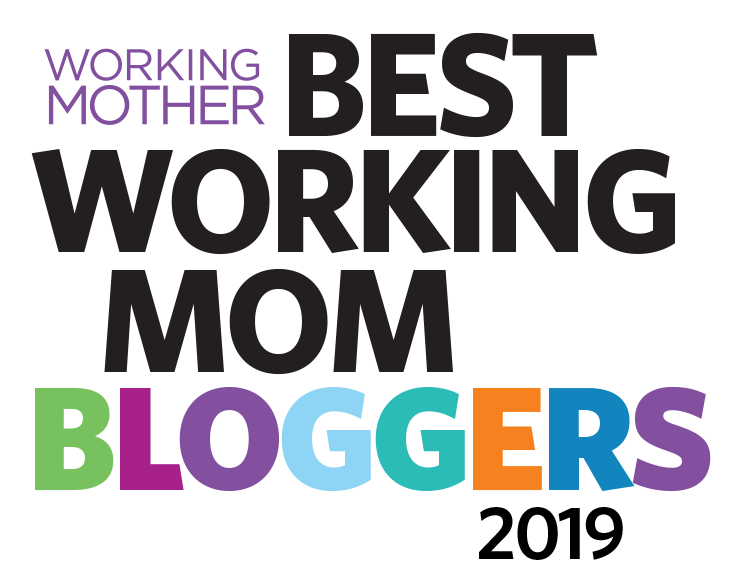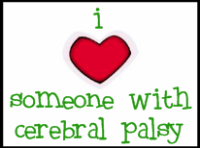"If you don't mind my asking, does he have autism?" people will say, looking at Max—if we're at a mall in a play area, if we're at a party and mingling with new people. "He has cerebral palsy, but he can definitely pass for a kid with autism!" I'll answer. "Thing is, you can't tell much just by looking."
People regularly assume that Max has autism because 1) He wears noise-blocking headphones 2) He has communication issues 3) He tends to obsess over certain things (purple, the movie Cars 2, purple, the movie Cars 2, purple...).
Whenever this happens, it makes me very aware of the stereotypes about children with autism. Max happens to fit some of them. If he were in a wheelchair, people would more readily realize he had cerebral palsy because that's a stereotype of having CP.
I totally get why people want to label Max. It makes them feel more comfortable to have a handle on what's up with him; there's a pervasive discomfort in our society with those who are different. I am not blaming, not at all—until I had a kid with special needs, I only felt pity for them.
But here's the thing about labels: They whitewash the uniqueness of the child. When people figure that Max has autism because he looks or acts a certain way, or when people think that kids with autism are like Dustin Hoffman in Rain Man, they presume to know what our children are like—which does our kids a major disservice. That's where we, their parents, come in.
Today is World Autism Awareness Day, dedicated to raising awareness and funding. The disorder has become increasingly prevalent—1 in every 50 kids has an autism spectrum disorder, according to the latest stats released by the Centers for Disease Control. (In case you're wondering, approximately 1 in 303 kids in the U.S. has cerebral palsy, and one in every 691 babies is born with Down syndrome.) A sea of blue will wash over the world: The Empire State Building, the Sydney Opera House and the Pyramids of Giza will all be bathed in blue light (Everyone Matters posted an awesome 2012 compilation video on Facebook). Homes and stores will shine blue. World Autism Awareness Day flags will fly.
Even as parents out there open people's eyes and hold fundraisers throughout the month, there's one key part of awareness all of us can promote, throughout the year: Help people understand that kids with special needs are distinct individuals with definitive preferences, likes and dislikes. You know, like any kids. Help dismantle the stereotypes that accompany the labels. Help people see the ability in disability.
Even as parents out there open people's eyes and hold fundraisers throughout the month, there's one key part of awareness all of us can promote, throughout the year: Help people understand that kids with special needs are distinct individuals with definitive preferences, likes and dislikes. You know, like any kids. Help dismantle the stereotypes that accompany the labels. Help people see the ability in disability.
Our kids may have autism, cerebral palsy or any number of other diagnoses. But ultimately, their special needs do not define who they are. Our kids kick butt. And, as their mamas, so do we. Let's keep right on spreading the word, today and every day.
Image: Flickr/techfun












Fabulous post, Ellen!!!
ReplyDeleteGreat post My eldest Kara who is 11 has autism. My son Tyler who is 9 and has Angelman Syndrome because he has some charateristics that are of autism: delayed speech, hand flapping,easily excitable, fasnation to water,devolpmentally delayed, short attention span.
ReplyDeleteI also have a 5 year old NT daughter Emma. She is starting to relize that her siblings are different.I am having a hard time explaining it to her. Any tips?
Sometimes people want to label so they can adjust their expectations. If I know a child is autistic, I'm going to expect AND ACCEPT different behavior from them. I don't want a label so I can dismiss them, I like a label so I can understand better.
ReplyDeleteSpot on!!
DeleteI saw this linked by Life With Jack. While I don't have a child with special needs, I have worked with many as a pediatric speech therapist. This is such a great post...I love discovering the uniqueness of the children I work with. Max is blessed to have a mom like you!
ReplyDeleteYou're so right difference equals discomfort and labeling a child does wipe out their uniqueness I have CP it is part of me not all of me.
ReplyDeleteThis was a terrific post on PLOS by Brenda Rothman(copied from The Thinking Person's Guide to Autism): http://blogs.plos.org/neurotribes/2013/04/01/what-i-learned-from-my-autistic-son-a-guest-post-by-brenda-rothman/.
ReplyDeleteIt includes this paragraph:
"At first, I’d go to the training session and tell the psychologist what I thought Jack’s problems were. “What about him playing with doors? That’s a problem, right? Kids don’t play with doors.” She would turn to me, tilt her head, and say, “You know this is about you, right?” That kept happening. I’d bring up what I thought was a problem, and she’d tilt her head and say, “You know this is about you?”
Right on. Here's a shout out to my amazing, bright, beautiful, talented, curious, autistic girls!
Again, Ellen, you are right on!! THANK YOU!!!
ReplyDeleteOur kids DO kick butt! Great post Ellen :)
ReplyDeleteThis brings to mind one of my favorite questions I get asked...
ReplyDeleteI volunteer at a camp for kids with ventilators and/or tracheostomies. Whenever I show people my camp pictures they always ask me "What's wrong with them?". That's when I get to tell them "nothing is wrong with them! They just do things a little differently" and stuff like that.
Amen & thank you.
ReplyDeleteFie on the pity stare. Fie on cures. Fie on ignorance. I am autistic and proud of who I am.
ReplyDeleteI get asked this question alot and even occasionally get pushy types insisting that he is autistic. I have to admit it pisses me off. Most people don't understand what Mood Disorder means and try to put a label on him they understand so they "know how to act" around him. I wish I could be more understanding about it but I'm not there yet. The stereotyping still upsets me. Still I'll keep trying to educate people and to be more understanding myself.
ReplyDeleteI know this was posted awhile ago, but it caught my attention. My daughter was recently diagnosed as being on the autism spectrum, but the doctors were quick to say all though she qualifies as autistic, they don't really think she is autistic. She just happens to have enough of the characteristics (no speech, tending to ignore in certain scenarios, some ocd tendencies.) that based on the ADOS test she is considered autistic. It's a label that is not very helpful in certain circumstances.
ReplyDelete